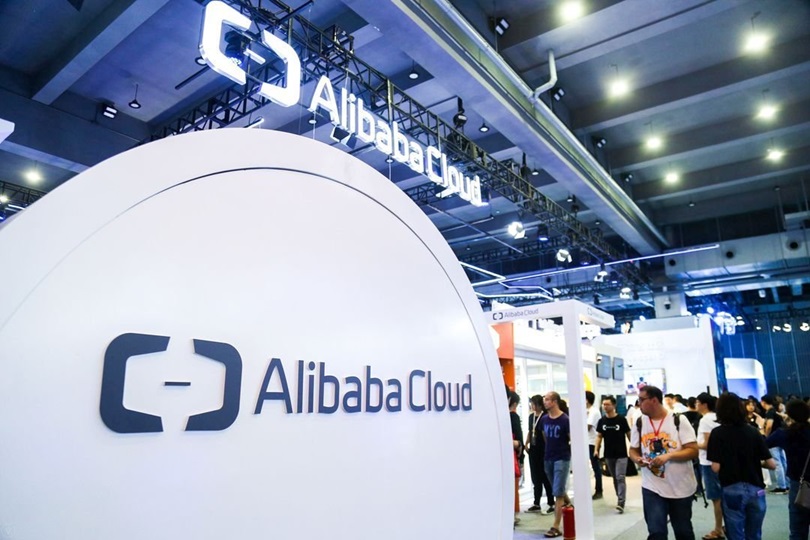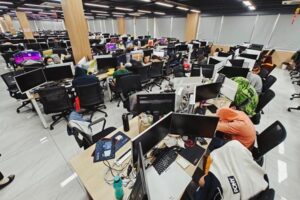Alibaba Group Holding’s cloud computing unit is making significant strides in reshaping China’s technological landscape, particularly in the field of artificial intelligence (AI). Joe Tsai, the company’s co-founder and newly-appointed chairman, delivered an insightful keynote speech at the annual Apsara Conference in Hangzhou, shedding light on Alibaba Cloud’s pivotal role in advancing China’s tech ecosystem and AI ambitions.
During his address, Joe Tsai revealed an astounding statistic: a staggering 80% of China’s technology companies, and half of the AI large language model companies, depend on Alibaba Cloud for their operations. This revelation underscores the integral role that Alibaba’s cloud services play in supporting the country’s burgeoning tech landscape. Tsai stated, “We aim to be the most open cloud in the era of AI,” emphasizing their commitment to democratizing AI technology by making it more accessible and affordable for all.
Alibaba Cloud has been at the forefront of cloud computing technology since its inception in 2009. Tsai highlighted that from day one, their mission has been to make computing services as ubiquitous and essential as water and electricity. This vision aligns perfectly with the cloud’s capacity to provide on-demand software and digital resources via the internet, mirroring the convenience and reliability of electricity from a power grid. As China’s premier cloud infrastructure services provider, Alibaba Cloud’s commitment to AI’s widespread application is poised to revolutionize industries.
Alibaba’s recent corporate restructuring is designed to meet the demands of a dynamic and competitive tech landscape. Tsai revealed that Alibaba is the world’s first large-scale internet company to migrate all its businesses to the cloud. This transition underscores their commitment to embracing digital transformation and cloud computing. During the Apsara Conference, Alibaba Cloud introduced Tongyi Qianwen 2.0, their latest AI large language model. With “a few hundreds of billions of parameters,” this powerful model promises to excel in various AI benchmarks, from language understanding to question-answering.
Large language models like Tongyi Qianwen 2.0 have the potential to disrupt multiple industries. Zhou Jingren, Alibaba Cloud’s CTO, emphasized their commitment to using cutting-edge technologies, including generative AI, to empower businesses and capture the growth momentum. Furthermore, Alibaba Cloud aims to facilitate cost-effective access to generative AI by launching a more powerful foundation model, along with industry-specific models tailored to specific challenges.
To cater to the surging demand for generative AI, Alibaba Cloud unveiled the GenAI Service Platform, an all-in-one AI model-building platform designed to assist companies in various industries in developing enterprise-specific AI models and applications. This platform holds the promise of simplifying AI model creation and application.
Additionally, Alibaba Cloud remains committed to open-source initiatives. They are expanding their contribution to resources like ModelScope, a model-as-a-service platform that provides access to ready-to-use AI models from leading AI institutions, covering domains from computer vision to natural language processing.
Finally, Alibaba Cloud’s startup catalyst program, launched at the Apsara Conference, offers cloud computing resources, including cloud credits and free online learning memberships, as well as networking opportunities to promising global startups. This initiative will empower startups to leverage cloud resources effectively, accelerating their growth and innovation.
(Source: Ann Cao | SCMP)









